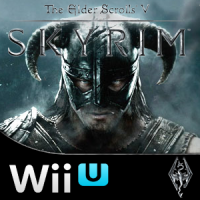Posted 26 January 2012 - 01:23 PM
DPain: They haven't - check out the article I linked and many of the news stories it cites: Microsoft has gone to considerable lengths to paint the picture of the Xbox 360 as a successful, profitable platform, but they haven't made anything resembling a net profit on the system - much like its predecessor - and the media has a distinct history of avoiding reporting on this.
The Xbox line has seen a net loss in billions - not millions, but billions - as the linked article even outright cites. Any money made on Live subscriptions has been thrown into a huge hole of overall net losses that they don't factor in when they report 'profiting.' They're not about to dampen their own celebrations by noting that they've lost far more money overall on the brand than they've ever made on any part of it. They spent half a billion marketing the Kinect at launch alone, and Kinect sales have slowed significantly - while most Kinect games actually sit on shelves and sell very poorly - since its initial launch rush. On top of that, it isn't remotely true that Microsoft sells the most games - despite what you might hear on many sites online, it's well documented that between the Wii and DS, Nintendo's sold the vast majority of software this generation, dwarfing both the Playstation and Xbox brands by a huge margin.
Xbox games get the largest and most visible push, but Nintendo's platforms have sold consistently more software overall, and have benefited from an evergreen market situation that neither Sony nor Microsoft have cultivated, where many DS and Wii titles have sold extremely well over long periods of time. On the whole, PS3 and 360 games are incredibly visibly front-loaded - they sell the vast majority of copies that they're going to in their first one to three weeks, then see significant drop-offs and rarely return to the charts. Likewise, the sales thresholds for the average HD game this generation to make money are - around 1.5 million copies on average - so high that the vast majority of games on either system have not made money. We've seen this reflected in the increasing financial decrepitude of third parties on the whole over the course of this generation, who bet their cards on Sony and Microsoft and against Nintendo, and in the past year, largely ceased their practice of bankrolling HD flops with money made on lower budget, lower-effort Wii games that made money.
That said, as you're obviously a Microsoft fan and customer - you registered solely to comment on this and argue - I do understand that you, as you put it in your last sentence, 'think Microsoft is doing fine, and are a great competition to Nintendo.' And it's perfectly fine to own and enjoy whatever brands and platforms you like - I'm not coming down on you for that here, so don't worry about that - but this is a matter of being informed. I'm speaking to you as a Sega fan here, who grew up enjoying their games just as much as Nintendo's, and was quite sad to see what became of them financially after the Genesis, when the Sega CD backfired, and then the 32X, and the Saturn never took off outside of Japan, and then the wonderful Dreamcast never had a prayer when the PS2 bulldozed through it. But the fact of the matter is, whether you like Microsoft and think they're doing fine, personally, or not, the reality of the situation is that they aren't - it's well-documented that the Xbox is a troubled brand within Microsoft, that they've taken massive financial losses on it for a solid decade now and aren't really in much position to expect a third Xbox to suddenly break the trend and turn things around for them.
The Xbox was a catastrophic stumble into the industry for them, losing an incredible amount of money where even Nintendo made more money on the Gamecube than Sony did on PS2 hardware sales, despite just barely coming in last place last generation. The average Xbox 360 game doesn't make money, Japanese games don't sell on it in any region, and only a scattering of major western titles - increasingly a seemingly endless parade of sequels in the same franchises year after year - within a very narrow selection of genres actually manage to make money on the platform or come along and turn into hits. A telling example is last year's Bulletstorm - as popular as Gears of War is, everyone expected the Epic brandname to turn that into a smash hit. Instead, it stumbled its way to 1.5 million in sales across both the Xbox 360 and PS3 and barely broke even, but it didn't make money. Another example is LA Noire, which despite its initial critical acclaim and solid sales, bombed so hard that it put its developer, Team Bondi, out of business entirely. And these were high profile 2011 titles with big budgets.
At this point, the competition Microsoft serves as to Nintendo could hardly be called 'great,' so much as extremely narrow, and beloved by a small, passionate audience that has very specific tastes in games that Microsoft and some third parties successfully cater to, but don't actually buy that many games in the long run. This generation's narrative of Microsoft (And Sony, for that matter), being the 'hardcore' company falls apart when little sells on the Xbox 360 outside of a scattering of FPS franchises - and Microsoft only has perhaps two major first party franchises that can be counted on to sell in Halo and Gears of War, though if I'm forgetting another, someone feel free to chime in - and the occasional major western RPG from Bethesda or Bioware, though those aren't guaranteed big sellers either, considering some of the stumbles Bioware's seen this generation too. Japanese games do not sell at all, and unless you're releasing a hyped up new iteration of a very popular franchise, you can't actually count on profitability on the 360.
As for Kinect, while it certainly successfully creamed the Move - which more or less died on arrival, as Sony's Vita now seems to be doing in Japan - in large part thanks to Microsoft giving it the biggest marketing budget in gaming industry history, it in no way turned into a rival for the Wii. It had one holiday season as a hot item back in 2010, but by this past holiday season, it was no longer a major gift item, nor moving much software to speak of. Game support for it dwindled significantly over the course of 2011. Last fall, when the game finally got a more violent title, we saw online and televised marketing for it basically begging people to buy the game - "The hardcore Kinect game you've been waiting for is finally here!" - and predictably, it was a huge bomb. Every multiplatform dance game released on it has sold better on the Wii and mostly gone ignored on Kinect - same with fitness releases. The family oriented kids' games have consistently tanked. And where the accessory largely remained a laughingstock among the 'core' gamers that never wanted it, it has long since faded from mainstream attention as anything more than a novelty, particularly compared to the Wii. It's interesting to look at the Wii narrative, where you'll see many on blogs insisting the system sold only as a 'Wii Sports and Wii Fit machine' to children and the elderly, where in reality the average Wii owner is documented to own more games than the average PS2 owner did. By contrast, Kinect seems to have largely sold as a Kinect Adventures machine, but little else has seen notable numbers on the platform. And with very few games revealed for Kinect in recent months and titles like the embarrassing Star Wars game from last E3 showing that Kinect possesses little more potential as a gaming device than Sony's very limited Eyetoy did on the PS2, coupled with Microsoft's less-than-serious efforts to push it as a mainstream platform, we've seen software support for the Kinect largely dry up, with little of note for it on the horizon. This also makes it kind of funny to see people suggesting that Microsoft will be banking heavily on another version of Kinect in their next Xbox - should they indeed ultimately release a third one - considering that it would be putting it gently to say they've struggled to sustain meaningful interest or develop a bountiful audience for the Kinect.
By contrast, the Wii sells a much larger variety of all sorts of games - both from Japanese and western developers - at a much lower cost, and it's been one of the industry's greatest failings this generation that they refused to take the market-dominating mass market console seriously.
In reality, the 'competition' Microsoft is to Nintendo is minor at best. They've put out two consoles that have lost them billions in net losses that they haven't even begun to make back in that division in the long term, and they've failed to gain any kind of mass market audience. They have a smaller, very vocal audience of fans - and it sounds like you're cut from that cloth, which is fine, as what matters most is that you're having fun with whatever game systems you own - that enjoys and supports a small number of major western titles that the 360 receives each year, but they're not a mass market audience. They don't have broad tastes. And they don't buy more games than the Wii audience. The financial difference between Nintendo and Microsoft in gaming this generation has been as stark as stark gets - Nintendo grew to their largest and most successful in the company's history, outgrowing the entirety of Sony (Which has been shrinking and seen multiple credit downgrades in the past couple of months alone.), while Microsoft has dealt with a lot of internal troubles, seen many employees and directors fired, and experienced a major financial fiasco due to the poor quality manufacturing of the Xbox 360, with the Red Ring of Doom upending that division of the company while they sold the console at a loss for most of the generation. That they lost merely as many billions as Nintendo made is staggering, and there's no way to spin that positively.
They aren't successfully competing - Kinect went rather expectedly from being marketed as a 'Wii killer' to turning into the Eyetoy 2 and failed to capture a broad audience or attract meaningful support. Microsoft itself took even larger losses on the 360 than the original Xbox, between both the massive leap forward they took with the technology - driving costs for both hardware manufacturing and game development through the ceiling, a problem that devastated Sony this generation too, considering that the PS3 is the biggest financial catastrophe in video game industry history - and a combination of cutting costs and poor hardware design leading to the RROD problem (Which they're still paying for repairs over to this day.), Microsoft dug a massive financial hole for themselves with the Xbox 360 this generation that the system could never hope to fill back in. Whenever they report 'profits,' they're always factoring out their losses - classic corporate spin and nothing more. Something Microsoft's been doing for longer than many of us have been alive. And when the vast majority of Xbox 360 games have failed to turn a profit thanks to the very narrow tastes of the system's userbase and the incredibly high cost of development - something Nintendo's been working on dealing with with the Wii U, to make it a less hostile environment to smaller developers - it's very difficult to paint Microsoft as 'great' competition to Nintendo.
You may not want to believe this - it's not a fun thing to accept as a fan of any platform, and believe me, as a Sega fan of old, I do understand - but this is the reality of the industry as things are now. Where the Wii broke records and reached new audiences formerly thought untouchable this generation, like the PS3, the Xbox 360 was a financial catastrophe for its parent company. Microsoft is financially solid enough outside of the Xbox division and extremely savvy when it comes to market and investor relations - especially when compared to the increasingly clunky, disjointed, and all-around poorly managed Sony - to make every effort to cover up how poorly the Xbox line has done and has continued to do for them. And people have lost their jobs over coming out and discussing the reality of the situation there, as mentioned in the article I previously linked. The fact of the matter is, after all these billions in losses over a decade, crossing two generations, it isn't a safe bet that the Xbox line will continue for too much longer. They're in a very difficult position with a third console, especially with the Wii U notably aggressively encroaching on territory thought to be Microsoft's this generation, and if they try to pull off another extremely powerful platform that ends up being a massive leap forward from the Xbox 360, they'll find themselves in another position where they're taking billions in losses on hardware for years again, while game development costs only get even worse than they are now. They're also under pressure over Xbox Live, with the competition offering free alternatives, and Nintendo known to be stepping up their online significantly this year to compete more directly on that level.
Considering how quickly the Kin and Zune were both axed as product lines after both led to hefty losses, with all that Microsoft has lost in the long term on the Xbox brand, its future is anything but guaranteed. I don't doubt that Microsoft will stick around in gaming if the Xbox line goes, though - they were producing PC games and releasing their own titles on Nintendo platforms as a third party before the original Xbox, much as Sony was. And I can easily see them channeling their vocal following in a new direction whenever the Xbox line does eventually come to a close, still keeping Xbox Live alive, but perhaps turning it into a direct Steam competitor on the PC and running their own games on it - as well as offering third parties incentives to use it too - as a third party service for some games on future Nintendo platforms, much like EA's Origin, Ubisoft's U-Play, the aforementioned Steam, and so on. Likewise, while Kinect has already shown its distinct limitations as a gaming platform, it's a very versatile piece of technology in terms of non-gaming applications, as many who've developed their own separate non-Xbox applications for it have already shown, so it certainly has a future as hardware goes. It's a bitter pill to swallow, and you really do have my sympathy - watching the slow burn of Sega's demise in hardware over the better part of a decade wasn't fun - but there's no saying you can't continue to enjoy the Xbox systems and the games they offer that you like while also being informed and accepting the actual reality of the financial state of the brand, which is anything but rosy. Sony is outright visibly falling apart over hefty losses across the whole company, and the PS3 nearly bankrupted them a few years back - they're nowhere near as well run, nor do they have the kind of massive financial reserves that Microsoft does. They can't cover up where they are in gaming like Microsoft can, and has deftly made every effort to do - but as Microsoft is also a better run company than Sony, they aren't going to keep throwing billions of dollars into a bottomless pit, like they have been with the Xbox line for the past decade. It would take something entirely unprecedented for an Xbox 720 to completely turn things around for Microsoft and make them the kind of money it would take to erase the losses they'll undoubtedly be taking on the hardware when it launches, let alone the entirety of the Xbox and Xbox 360 billions in losses. More likely than not, shareholders are going to pull the plug at some point, and we're going to see the Xbox brand and Live evolve into something else entirely - Microsoft will maintain some presence in gaming, there's no question of that, but when they can't compete and make money for themselves or third parties on their own consoles and are still billions in the hole in gaming ten years later, it's not even remotely wise for them to continue their current business model in gaming. And there are paths forward for Microsoft that would be and likely will be much more successful and profitable for them in gaming in the future. But financially speaking, they're clearly completely in over their heads in gaming hardware, and like Sony, don't know how to compete against a much smaller, numbler, and ultimately more adaptable company like Nintendo, where they completely understand what kinds of products they're making and selling, and know how to sell to wide audiences without it being something as cynical as Move and Kinect were.
At any rate, whether or not you choose to accept where Microsoft actually is in terms of finances and profits in gaming makes no difference either way, and it certainly shouldn't affect your enjoyment of their systems. What matters most to individual gamers is that you enjoy whatever you're playing, be it something as big as the PS2 or Wii or failed as the Dreamcast or Game Gear. But there's nothing to be gained from remaining willfully ignorang or uninformed about the financial realities of the industry today - if anything, it will help prepare you for the shocks of the major changes we're going to be seeing in gaming in the coming years. Sony's era is long over at this point. Microsoft hasn't proven themselves financially viable in gaming hardware a decade later. And Nintendo has come roaring back to the top and changed things significantly with the Wii and DS, and they're moving into another disruptive era with the 3DS and Wii U. Five, ten years from now, the industry will not look like what it looks like today - more likely than not, we won't see the Playstation or Xbox brands continuing on in console form. We may not even see another manufacturer step up and start pitting new home consoles against Nintendo unless a company like Apple or Google takes the plunge. But as we've been seeing for years now, with things like smartphones, iPhones, and iPads, what constitutes a video game platform is becoming more and more abstract and nebulous a concept. And the industry as we know it is only going to get foggier as the traditional console and handheld models have to compete with completely new and different circumstances and games being played on all sorts of additional home and personal devices.
The video game industry as we know it now, and as we've known it for decades is only going to continue to change into something radically different. These past two generations have shown that the market will not sustain three competing home consoles, and that hit the industry - which made the poor call of betting against Nintendo - incredibly hard this generation. Things are only going to get stranger, more exciting, and even more difficult to predict as the industry model as we know it continues to crumble under the spread of games to so many other devices and the problem of the rising costs of development wrecking developer bottom lines and shrinking the whole of the industry in a dangerous manner. It's evident that neither Sony nor Microsoft has what it takes to continue competing in the traditional console and portable models, where Nintendo is industry and market savvy enough to keep that up much longer than either of them. But that said, even Nintendo will have to adapt to the changing times and we may see them build their own gaming-focal smart devices in the future, adapting and mutating as necessary to survive while still producing dedicated gaming platforms. In Sony's case, dropping gaming hardware is a visible necessity as the company increasingly desperately needs some major reorganization and refocus in order to stay in business before their creditors call in their massive debts and we see them fold. In Microsoft's case, the Xbox brand's future is pretty much a matter of how much longer shareholders are willing to continue to see the company lose billions of dollars in gaming consoles that can't compete with Nintendo's mass market appeal and following. It's not so much a matter of if, but when - just as we Sega fans had to face when the Dreamcast came out. It was fun while it lasted, but it couldn't last.


























